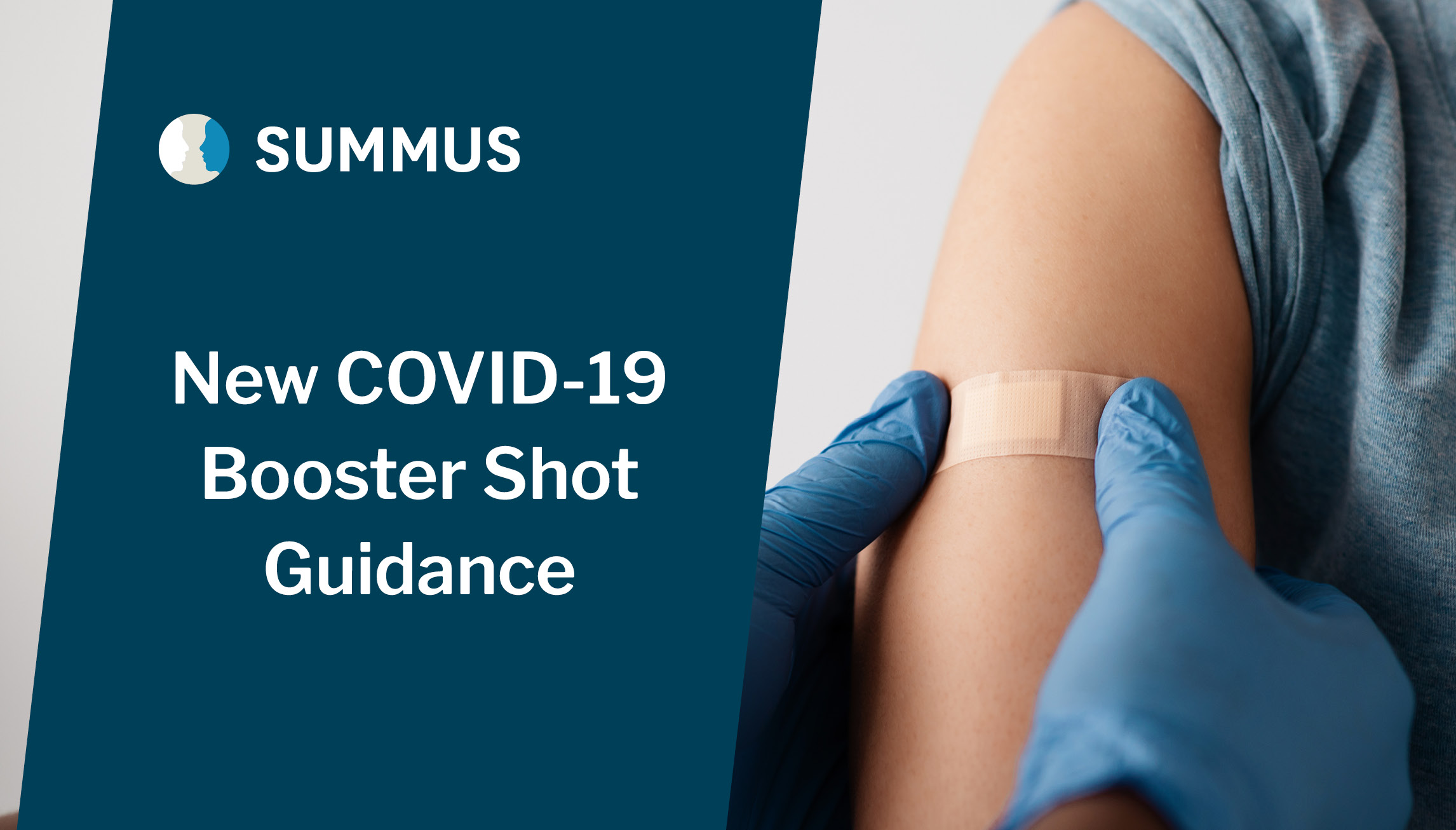While it may seem that COVID-19 is in our rearview mirror, continued booster shots are an important defense to protect against serious illness from the virus. The fall and winter seasons have the potential to see a rise in COVID-19 cases, especially with the highly contagious Omicron variant continuing to spread and people spending more time indoors. COVID-19 vaccines available in the United States are effective at protecting people from getting seriously ill, hospitalized, and dying. The Centers for Disease Control and Prevention (CDC) recommends that people stay up to date with their recommended vaccines, including all primary series doses and boosters for their age group. The new booster shots have been updated to provide better protection against the most recent variants of the virus.
Read more from Nancy Creech, MD, Summus VP of Clinical Operations and board-certified in Emergency Medicine, about the new Omicron-targeting booster shots and how to get expert medical advice to questions you may have about the new boosters.
New COVID-19 Booster
The new COVID-19 booster shots, approved for use by the CDC this month, were updated to target the most common Omicron variants, which have contributed to significant spread in the United States. The new boosters consist of half of the original COVID-19 vaccine formula, and the other half consists of a new formula that targets recent highly transmissible variants. Because the boosters target different strains of the virus, it is considered a bivalent vaccine. This is similar to the yearly flu shot that changes its formula to target various strains.
People Eligible for the New Booster
There are two booster shot options. Moderna’s booster shot is authorized for those 18 years of age and older and Pfizer’s shot is authorized for those 12 years of age and older. You can receive a shot as long as it has been at least two months since receiving your initial vaccination series or most recent booster shot.
It is important to note that everyone must receive the initial COVID-19 vaccine series before being able to get the new bivalent booster.
You should get a COVID-19 booster even if you already had COVID-19. If you have COVID or recently recovered from COVID, you may want to consider waiting for 3 months to get the new booster. Talk with your doctor or a Summus MD to determine the best timing for you to get your booster shot and answer any other questions you may have.
COVID-19 Booster and Flu Shot
According to the CDC, getting the new COVID-19 vaccine and flu shot on the same day is safe and effective. There is no data or information available to suggest that getting both shots in one day increases the risk of side effects. Side effects from the booster shot are similar to the previous COVID vaccines: pain and redness at the injection site, fever, fatigue, headache, and muscle pain.
The CDC recommends everyone get a flu shot. There is a high likelihood that the flu will be more severe this year, especially since other countries like Australia, have seen a rise in flu cases during its traditional flu season.
Summus Is Ready to Answer Member Questions
As the leading virtual specialty care provider, Summus is transforming the way people access medical expertise. Our members get the best medical answers with speed and confidence. Employers, HR leaders, and payors can learn more about Summus and how we can answer any health question, including questions about COVID-19. We are ready to connect our members to a leading doctor in just hours.
About the Author
Nancy Creech, MD, is the VP of Clinical Operations at Summus and served as a Clinical Instructor of Emergency Medicine at NYU Langone Medical Center. She graduated from the University of Illinois at Chicago College of Medicine and completed her residency at NewYork-Presbyterian University Hospitals of Cornell and Columbia. She is board-certified in Emergency Medicine.






